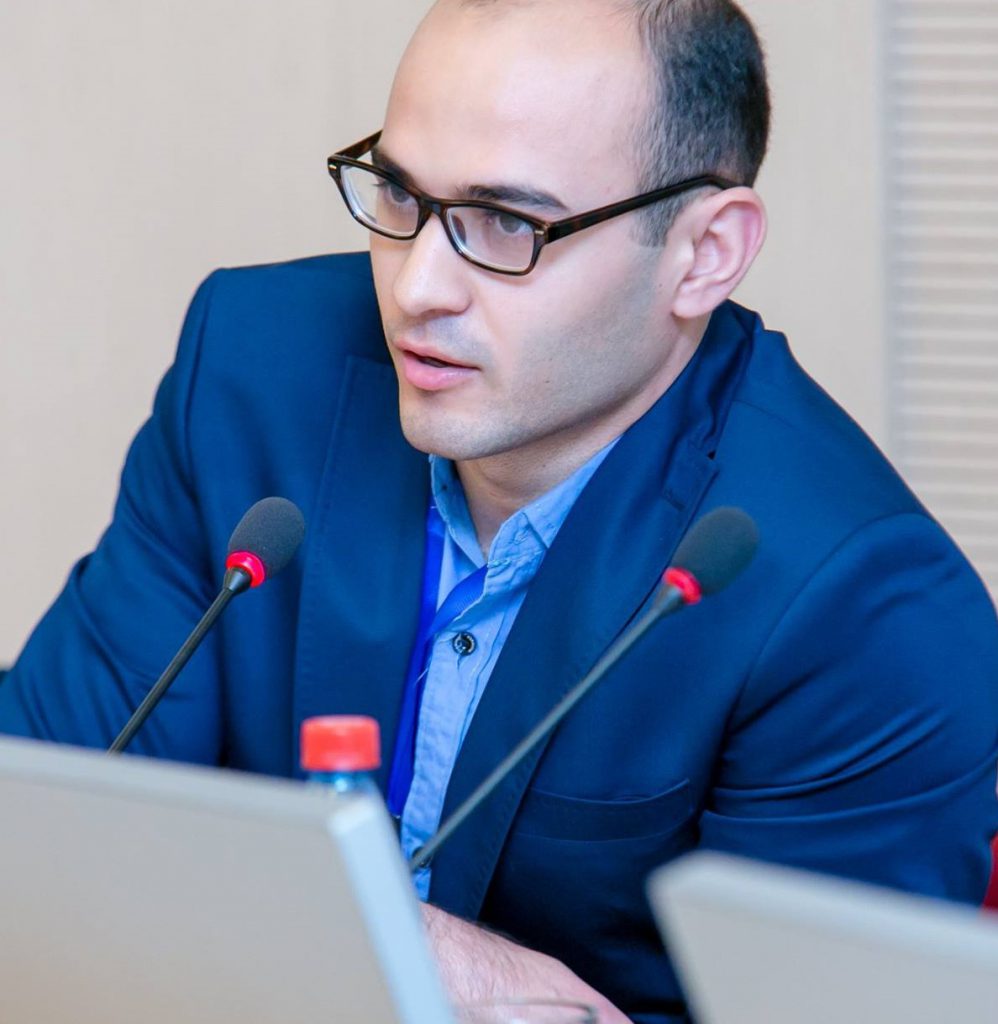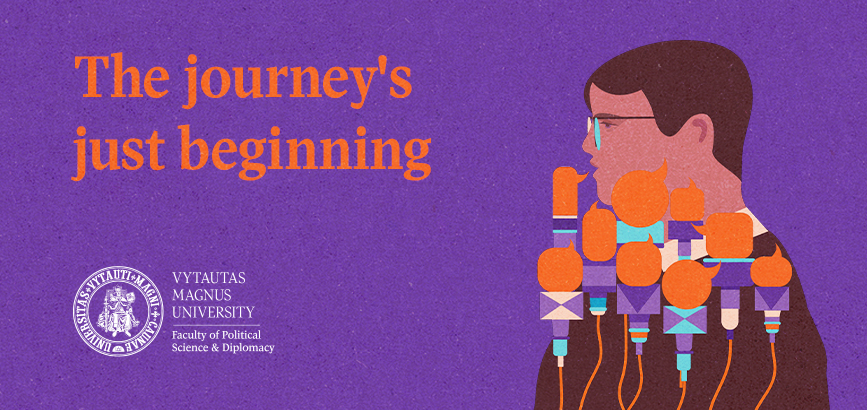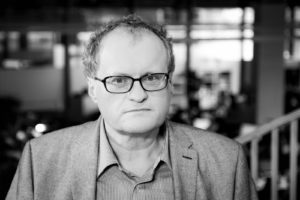An interdisciplinary conference in memory L. Donskis
The Interdisciplinary Intellectual Practices and Moral Imagination of Leonidas Donskis
In memory of philosopher Professor Leonidas Donskis, the Department of Philosophy and Social Critique at Vytautas Magnus University (VMU) is organizing an interdisciplinary conference of humanities and social sciences devoted to his thinking and research.
The conference will be held at Vytautas Magnus University on May 11 – 12, 2017.
Themes of the conference, all of which are related and devoted to Donskis‘ own research:
- Comparative civilizational analysis and Oswald Spengler
- Theories of nationalism and the problem of ideology
- History of ideas and the history of social and political philosophy
- Moral imagination and modernity’s trajectories
- Renaissance and Baroque philosophy
- Intersections of literature and politics
 Critics of dystopias and utopias
Critics of dystopias and utopias- Transformation of socialist intelligentsia into Western public intellectuals
- Cultural and political idea of Europe
- Dissents of Europe and human rights
- New civic dissent and human rights in Russia
- Modern identity and cosmopolitanism
- The problem of evil and forms of hatred in liquid modernity
- The role(s) of the public intellectual in society
The conference welcomes financial, intellectual and organizational contributions.
Lectures by the Swedish Think Tank Expert
 On February 21-22 an expert from the think tank The Swedish institute of International Affairs – PhD Anke Schmidt-Felzamnn will give lectures on the Baltic Sea region cooperation, impact of NordStream 2 gas pipeline project on the states of the Baltic Sea region and operation of think tanks and communication between experts and media.
On February 21-22 an expert from the think tank The Swedish institute of International Affairs – PhD Anke Schmidt-Felzamnn will give lectures on the Baltic Sea region cooperation, impact of NordStream 2 gas pipeline project on the states of the Baltic Sea region and operation of think tanks and communication between experts and media.
PhD Anke Schmidt-Felzamnn current research is concerned with the European Union’s performance as an international actor in bilateral relations, taking into account the interplay of EU internal and external factors. Her main focus is on the EU’s energy, trade and human rights policies towards the Russian Federation. PhD Anke Schmidt-Felzamnn defended her PhD thesis on the EU Member States’ Motivations for Dealing with Russia at the University of Glasgow. She holds also an MSc from the University of Edinburgh and an MA from the Johannes Gutenberg University of Mainz.
“The impact NordStream 2 project on the states of the Baltic Sea region”, S. Daukanto St. 28-105, at 11:15, February 21st.
“The operation of think tanks and communication with media”, Putvinskio St. 23-311, at 16:15, February 21st.
“The cooperation of the Baltic Sea states”, Gedimino St. 44-202, at 11:15, February 22nd.
“The economic and energy cooperation in the Baltic Sea region”, Putvinskio St. 23-311, at 16:15, February 22nd.
Faculty Alumni – PhD researcher in New Zealand
 After graduation from Master degree programme “Diplomacy and International Relations” at Vytautas Magnus University (VMU), Daviti Mtchedlishvili from Georgia was accepted as a PhD researcher in New Zealand. Currently D. Mtchedlishvili is working at a multi-disciplinary centre that brings together graduates and academics from a wide range of disciplines to research the European Union and Europe-related issues. “Studying at VMU was one of the major transition periods for me, involving new experiences and new skills. VMU was a great opportunity for learning and personal growth and it has had a very big impact on me and my future endeavors“, – says VMU Alumni.
After graduation from Master degree programme “Diplomacy and International Relations” at Vytautas Magnus University (VMU), Daviti Mtchedlishvili from Georgia was accepted as a PhD researcher in New Zealand. Currently D. Mtchedlishvili is working at a multi-disciplinary centre that brings together graduates and academics from a wide range of disciplines to research the European Union and Europe-related issues. “Studying at VMU was one of the major transition periods for me, involving new experiences and new skills. VMU was a great opportunity for learning and personal growth and it has had a very big impact on me and my future endeavors“, – says VMU Alumni.
What expectations and goals did you have before starting your studies and becoming a student at VMU? Did you manage to achieve them?
Starting university in a foreign country delivers great anticipation, often with equal measures of excitement and fear of the unknown. Studying at VMU was one of the major transition periods for me, involving new experiences and new skills. VMU was a great opportunity for learning and personal growth and it has had a very big impact on me and my future endeavors. I am more than grateful that I received an immense support and encouragement from VMU staff to navigate a successful academic transition process of mine. Being a master student of “Diplomacy and International Relations”, I was given comprehensively competitive education. Further, I have made loads of new friends and am generally very happy with my choice of university. The programme offers a comprehensive range of courses taught by Lithuanian and international professionals. VMU gives us the “fountain of knowledge”, one just need to grab it! Living in Lithuania was another pleasure that made my 2 years impressive.
 Why did you choose particular study programme at VMU?
Why did you choose particular study programme at VMU?
In general, my scholarly interests primarily lay in international relations and politics. This is a logical consequence of my choice of the study programme. In a nutshell, it is impossible to become a professional diplomat without a solid scientific base. “Diplomacy and International Relations” programme has been and remains a pioneer in this area. Since an important impetus for the study of “Diplomacy and International Relations” as an independent discipline under the auspices of the UN Vienna Diplomatic Conference, this programme has become one of the most popular graduate study programmes in the whole world, and Vytautas Magnus University is not an exception. I can state that programme methodology and outcomes are directly proportional. The programme gives opportunity to gain theoretical and practical experience, as well as analytical skills to quantify the main challenges in international relations. What is more, precisely, I have enjoyed all courses through the whole curriculum.
What about your professional career? Where did you want to work after your studies and where life brought you? Where do you work now?
During my master degree studies at VMU, I have developed strong interests in Europeanization process, especially in the Eastern Neighborhood, as I advocate the opinion that the defined area is a key part of the European Union’s foreign policy. Particularly, this is the reason why I chose Europeanization as a theme for my master dissertation. After receiving master degree from VMU, I spent half year as a project manager intern working for Governmental Organization in Slovenia. VMU provided me with a deeper realization of importance of being competent in various spheres of political science and international relations. I am deeply convinced that VMU background can make a political scientist to be complete expert in this field of research. The understanding of this fact and my strong aspiration to become highly qualified researcher led me to decision to apply for the PhD position. I decided to combine disciplinary depth with broad cross-disciplinary insights on European research. After a long and challenging procedure, I was accepted as a PhD researcher in New Zealand, at University of Canterbury. Currently I am working at a multi-disciplinary centre that brings together graduates, post-doctoral fellows and academics from a wide range of disciplines to research and study the European Union and Europe-related issues and topics.
How VMU and study programme helped you to achieve your goals and integrate into job market?
VMU has been one of the main catalysts of my success. On the other hand, the programme enabled me to capitalize on my research skills whilst allowing me to make a progress in my future academic career. VMU has equipped me with a broad range of experience and reputation. The willingness of professors from VMU to be advisors and on the other hand professional references on my behalf for PhD admission process played a central role in the admission decision. I advise to current and future students to grab that “fountain of knowledge” the VMU flows. The VMU will definitely articulate your expectations and you will receive a high level of satisfaction related to your qualification
B. Larsson: how to employ at the EU institutions?
 Lecture – discussion “Opportunities and perspectives: how to employ at the EU institutions?“
Lecture – discussion “Opportunities and perspectives: how to employ at the EU institutions?“
At 4 p.m. on the 13th of October a lecture-discussion “Opportunities and perspectives: how to employ at the EU institutions? “ will take place at the Faculty of Political Science (Putvinskio 23-311) in Kaunas.
Our guest Björn Larsson, Director for Human Resources from the European Union’s diplomatic service (EEAS) in Brussels will have a lecture and participate in the discussion with students and lecturers. EEAS Personnel Director as an official and as a person visits Lithuania the first time.
Discussion moderator prof. Algis Krupavičius.
In the discussion will also participate the guests from the Ministry of Foreign Affairs of Lithuania:
– Ričardas Šlepavičius, Director of the Personal Department at Ministry of Foreign Affairs
– Rita Kazragienė, Ambassador at Large at Ministry of Foreign Affairs of Lithuania (coordination of employment at EU and international institutions ES)
– Darius Vitkauskas, Minister Counsellor at Permanent representation of Lithuania to the European Union in Brussels
During the meeting, participants will have the unique opportunity to hear about the EU diplomatic service (EEAS), the prospects and opportunities to work in the EU institutions and have traineeships. Our guests know best what people wishing to work at the EU diplomatic service have to know, which competencies and skills to have, how to prepare for the selections.





 Critics of dystopias and utopias
Critics of dystopias and utopias






